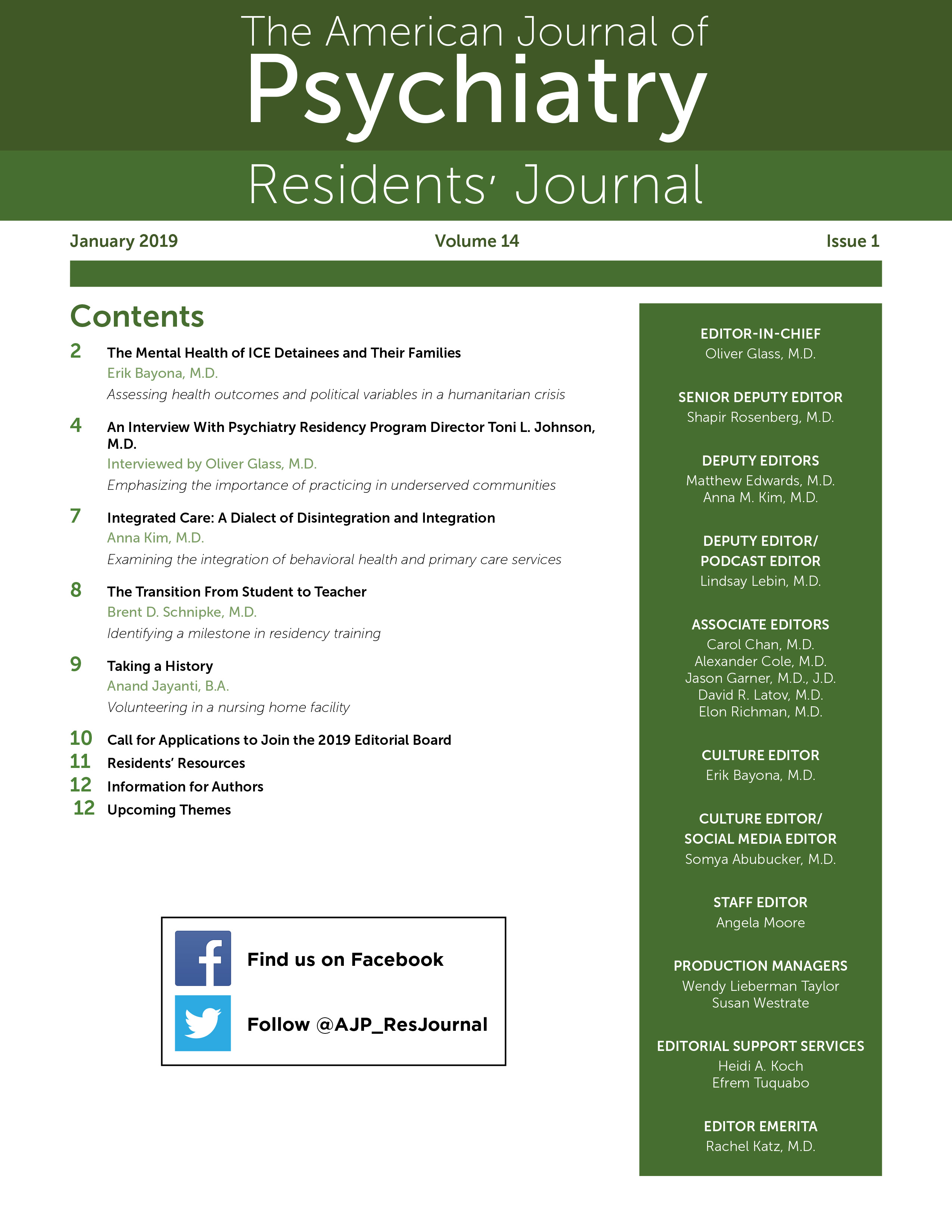The first 2 years of medical school sometimes felt like a theater production: I was fitted for a new coat, given lines, and trained as a doctor's understudy. Even from the wings, however, the promise of actual healing felt far away. I went in search of that promise one weekend at a nursing home, volunteering as a medical student to visit patients during the holidays. When I told the nurse that I was assigned to a 98-year-old woman named Anna, she directed her gaze down a dim corridor and said, grimly, "good luck." "Ms. Anna," I said from the doorway, "Can I join you?" "Not like it's my choice, is it," she challenged. "Nothing's my choice anymore."
As we spoke, deprivation of choice seemed to reveal itself as a theme throughout Anna's story, spanning recollections of the Great Depression, two world wars, and life-long poverty. I began to see, however, that her story of destitution was just the stage for her story of triumph. She wasn't resentful of those circumstances; she was nostalgic about them. Work meant a chance to be useful, and need provided a chance to be necessary. "My mother taught me I was as good as my work," she said; for even when Anna had nothing at all, she'd had the choice to work. Tearfully, she confessed that the staff wouldn't even let her wash her own dishes anymore.
That night, I reflected on one of her most vivid memories: Anna and her 12 siblings embracing their father, his hands blackened with coal. "It was difficult to fit all 13 of us around him, but we managed," she'd said. I considered how long ago I last hugged my father when he came home from work, even though there was just one of me. I wanted to show Anna that even though she couldn't help with the dishes anymore, she still helped me see life from her perspective of gratitude.
That winter, I illustrated Anna's upbringing as a children's book. Throughout my life, I made art to lose myself in another world. In the pages of Anna's story, however, I hoped to help her find herself in this world and show her that the little girl I heard about was still alive within her. I displayed the finished book at my school's library, and by the end of the week, its back pages contained nearly 200 hand-written messages from classmates, professors, and deans.
I returned to the nursing home that Christmas, only to find that she had broken her hip and would be on sedative pain management for the rest of her life. Anna didn't choose to grow up during the Depression, she didn't choose to grow old, and she didn't choose to pass away last February, but she did choose to tell her story. That choice empowered me to participate in the elusive promise of healing that I sought as a fledgling medical student. Even when I felt that I could do nothing, she taught me that I could listen.
